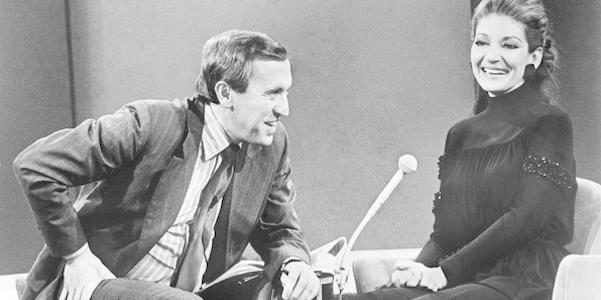
ReelBob: ‘Maria by Callas’ ★★★½
By Bob Bloom
In her lifetime, Maria Callas was considered the stereotypical prima donna — demanding, difficult, self-centered, concerned only with the care of her voice — and nothing else.
But, as the documentary, “Maria by Callas” demonstrates, this great soprano was so much more.
Tom Volf’s documentary allows Callas to tell her story in her own words — through her private letters, TV and newspaper interviews, home movies, family photographs and unpublished memoirs.
Early in the movie, the opera singer makes a distinction between Maria and Callas.
Callas is the artist, the performer who demands perfection — from herself, most of all, but also from others.
Maria is the offstage person, a sometimes shy and insecure individual who desires the love, warmth and normalcy she was denied as a child.
Callas was born in New York to Greek immigrant parents. Her domineering mother forced her to take singing lessons after recognizing her vocal talent.
And, as Maria explains, in the 1930s, children did what they were told. So, she acquiesced.
In 1937, the family moved back to Greece — living through the privations and hardships of World War II — but with Maria continuing her voice lessons.
One of the film’s drawbacks is Maria’s reticence to go into detail about her personal life. She is rather sketchy about her relationship with her father and siblings.
Nor does she ever mention her husband by name, only saying that, as her manager, he took advantage of her stardom to the detriment of her career.
She made her debut in Italy and soon — because of her vocal range and interpretation of some of opera’s finest roles — rose to international superstardom.
Her career was tumultuous — triumphs mixed with canceled performances and battles with management about doing the same operas again and again the same way.
Callas wanted to expand and challenge herself. She also constantly worried about the public’s perception of her as a demanding diva.
She claimed she was not sensitive to criticism, but her own words belie her public bravado.
Of course, her biggest scandal centered on her friendship and affair with Greek tycoon Aristotle Onassis, which began while Maria was still married.
His later marriage to Jacqueline Kennedy, widow of the assassinated U.S. president, devastated Maria. She considered it a betrayal.
Still, the focus of “Maria by Callas” is her career. At times, she needed to get away from the stage — giving Maria the freedom denied by the demands on Callas, the opera star.
Because the movie is told by Maria, it presents a sympathetic portrayal of the woman and the artist. Volf has done his research uncovering the woman underneath the layers of legend and public perception.
Even if you don’t know a note of opera — or care about it — “Maria by Callas” is worth seeing to learn about a 20th-century icon who ignited stages with her voice and her passion.
I am a founding member of the Indiana Film Journalists Association. My reviews appear at ReelBob (reelbob.com) and Rottentomatoes (www.rottentomatoes.com). I also review Blu-rays and DVDs. I can be reached by email at bobbloomjc@gmail.com or on Twitter @ReelBobBloom. Links to my reviews can be found on Facebook, Twitter, Google+ and LinkedIn.
MARIA BY CALLAS
3½ stars out of 4
(PG), adult situations and themes, language, smoking